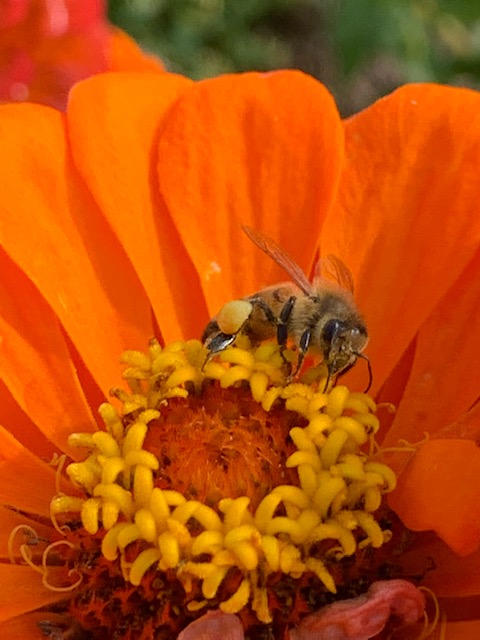By Debbie Rodda
There are three main reasons why people like to keep bees. One is to pollinate their fruit trees and vegie gardens. Another is to “save the bees”. A third reason is to provide honey for family and friends.
To my thinking, the honey bee (Apis mellifera) doesn’t necessarily need ‘saving’ in Australia. Not only do we have a very good wild population, there are thousands of hobby beekeepers and many commercial apiaries existing around the country.
Despite the carnage caused by fire and flood honey bees have survived to date. But this will not be the case if the current Varroa destructor mite incursion in NSW gets through containment lines. This will be devastating to the honeybee population both in managed hives and for those in the wild, and it will have a profound effect on both honey production and pollination industries here.
When Varroa hit New Zealand in 2000 it wiped out most of the wild honey bee population and a large percentage of managed colonies. Let me be clear here, if or when Varroa Mite hits us, the unmanaged colonies in backyards will die. A 3% infestation, if not treated immediately, will usually end with a dead hive. It’s important to start now on learning how to manage this insidious pest. We are going to need all hobby beekeepers to step up!
Most are not aware that beekeeping is quite regulated now for both hobbyists and commercial apiarists, due to the long list of pests and disease that have already found their way here, coupled with the huge increase of hobby beekeepers. I can’t stress enough how important it is for backyard beekeepers to register their hive/s with their State Authority: DPI NSW or Dept of Ag in Victoria. You cannot be contacted by the Department about local outbreaks if you are not registered with them.
Currently testing for Varroa mite includes either a sugar shake test or alcohol wash test and a drone uncapping in spring and autumn. But if considering beekeeping it is helpful to find a club, do a course, read the Biosecurity Manual for Beekeepers online and know what is required of your registration. It has excellent, easy to read information and photos on pests and diseases, as well as the legal requirements of record keeping and disease tests, including tests for Varroa mite. I will be doing a few more Varroa tests this season!
As I say, beekeeping is a passion not easily explained, but it’s not for everyone.

